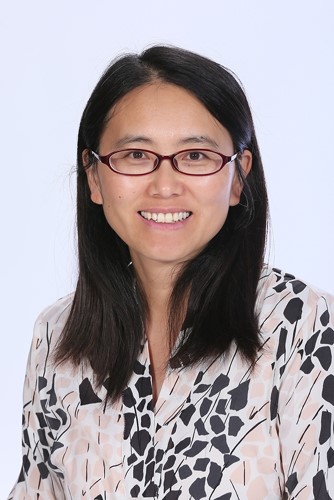Meet Ms Tina Xu, Dual Language Teacher in Early Years!
With twenty years of experience working in international education, Ms Tina is indeed one of our most experienced dual language teachers, currently dedicating her energy and expertise to our Year 1 and Year 2 students. We have had to pleasure to meet her to learn more about her teaching journey.

Ms Tina, would you please share your experience with the community?
I started my career as a local teacher in Hebei. In 2000, I had the opportunity to join the Montessori School of Beijing (MSB) where I stayed for 5 years before joining DCB as a teaching assistant for Year 1 and Year 2. Today, I’m a Dual Language Teacher (DLT) with twenty years of experience in international education, including seventeen years as a Chinese teacher.
How would you describe the evolution of your professional journey?
I hold a BA degree in English from Tianjin University which I have completed with an additional year of study at the Beijing Normal University. As a former MSB teacher, I’m also certified from the American Montessori School.
Evolving to Teaching Assistant required a rather long and complicated assessment process which took me a whole year to meet all the criteria in terms of Learning and teaching, Children’s wellbeing, Planning assessment, Curriculum knowledge, and so on. I have to admit the process was quite stressful! I worked a lot to deliver lessons and provide proofs that I met all the requirements for each criterion. As part of the assessment process, I was occasionally observed while teaching by my peers and the leadership team to evaluate and improve my teaching skills.
How would you describe the main characteristics you see in children you take care of?
I’m supporting Year 1 and Year 2 students in their dual language acquisition.
At this age, they are starting to be more independent and they are curious about everything. They are eager learners with rich imaginations. Friendship and teamwork are very important to them, so they want to be liked and well-accepted by their classmates and friends. They absolutely love to play! And as you can imagine, boys particularly enjoy chasing each other and pretending to fight in their games.
With such extensive experience, you must have developed some “secret” teaching methods. Would you care to share some with us?
With children of this age, I really have to find what interests them, then relate the lesson to these centres of interest. The most efficient way is to make learning enjoyable to them by using games, ICT skills, and ask them lots of open questions to enhance more interactions.
Teaching English and Chinese to them relies on the same principle: learning through play. I always make sure to encourage them often, so they feel confident. Of course, I have to enter the classroom with an already well-prepared lesson, so I can then focus on capturing their attention and stimulating them during the actual class.
One last question to help the Early Years parents who are reading us: what is your advice to parents who would like to encourage reading and help their children at home?
As I said, children at this age love to play. So the best way to stimulate their language acquisition would be to do fun things together as a family, such as playing games. That would be a good way for daddies to be more involved with their child(ren). Another very important thing is for them to read every day, both in English and in Chinese, and let them listen to English audios, especially if they are not exposed to an English-speaking environment at home.







